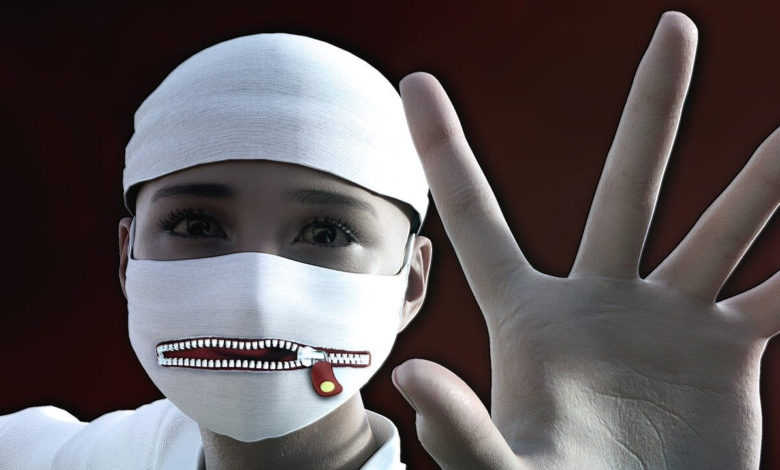Digital Dictatorship After Covid-19

“Digital dictatorship” is a concept that has been heard more and more frequently in the last period and was first mentioned by Stefan Aust and Thomas Ammann. In 2018, Yuval Harari, at the World Economic Forum in Davos, pointed out that we can reach to a cliff or a new evolution with data ownership regulation while expressing their views on what the effects of data will have on human beings and life in the near future.
What is waiting for the world after the deadly coronavirus epidemic in China? The issues of whether the new world order after the pandemic will come or not are keeping minds busy. My personal opinion is; We are sailing to a world in the style of George Orwell’s 1984 novel. I recently watched a documentary about China on Belgian state television (RTBF). Let me give some interesting information about this documentary that Belgian TV players have been staying and researching in different parts of China for weeks, some of which have been revealed with secret shots and recordings. Approximately 200 million cameras watch almost the entire country street by street. All information is processed centrally by the state. Everyone on the street is detected by facial recognition technology. Cameras can even identify people not only from the face, but also from the back. Artificial intelligence applications are so advanced that cameras can detect whether people are upset, happy or angry.
Citizen Rating Practice from China
Citizens scoring, a program initiated by the Chinese government and attaching great importance and which has been piloted in some regions for now, is planned to be implemented in all countries in the country in a short time. The system gives each citizen a citizenship score. For example, everyone is given 1000 points at first, and points are deducted in every negative behavior against the state. Points are added to good citizens, for example the citizens who reported bad citizens. Citizens whose scores fall below a certain level are subject to certain public restrictions. For example, the system prevent to get a bank loan or buying intercity flights. Even prevent to work as a public servant.
Which Managers Will Win the Competition?
In many important areas and levels, from global markets to military strategies, states are creating new tactics and strategies to take over this digital dictatorship. Some major players, such as the USA, China and Russia, are the superpowers of this war in digital-politics. Although states with low economic situation and smaller population, can also train specialized people, create software, can achieve a certain level of competitiveness, factors such as the advantages in the real-political arena and the size of the market are the factors that determine the main players in the digital-political arena.
Over the past years, China has established and built digital platforms for its citizens, from which it has control over national search engine to correspondence program, from national virtual shopping site to social media applications, and where it can censor any area it wishes. Thanks to the population of the country, which has nearly a billion internet users who are obliged to use these platforms, it has made this sustainable. Moreover, besides being sustainable, it has provided competitive power in all respects with brands such as Google, Amazon and WhatsApp worldwide. At this point, superpowers with large populations, economic volume and the ability to influence the market come to the fore. China on its way to become a digital dictator; The question in the mind is: Who Will be authoritarian actors? Will The States have tight control over the individual, or will governments who trust their individuals more and set them free while they put their power at risk?




